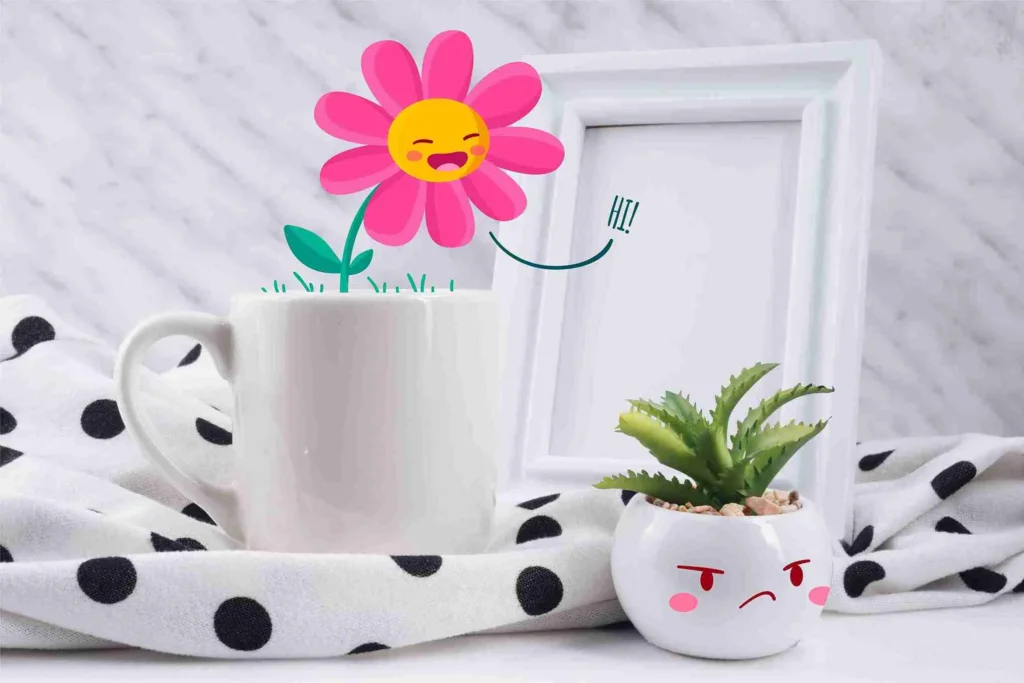Maintaining a balanced life requires taking care of your mental health. To improve your overall well-being, focus on small daily habits that can positively impact your mood and sense of fulfillment. Engaging in self-care activities like journaling or meditating can make you feel much better. Start by choosing simple practices that you can do regularly, as consistency is key to seeing results.
There are many ways to stay healthy, but it’s important to find what exactly helps you. Each person is different, so spend time learning what works best for you. By implementing these strategies, you’ll see the benefits over time. Even small changes can make a good difference in your life. Whether it’s a morning walk or setting aside time for relaxation, choose ones that align with your goals.
Remember, someone else’s method might not work for you, so focus on understanding yourself and doing what brings you joy. Ultimately, these steps will not only improve your mood but also lead to a sense of betterment and a healthier state of mind.
Why Is Mental Health Essential?
A balanced life begins with a strong foundation of mental health. It affects how you handle stress, how you relate to others, and how you make decisions every day. When you make caring for yourself a priority, you unlock opportunities for improved mood and a sense of peace.
Start small by practicing habits that lead to reduced anxiety and clearer thinking. For example, daily journaling or mindful breathing can help you manage tough situations while strengthening your self-esteem and confidence. These simple actions also nurture deeper relationships, as they allow you to connect with others in a more meaningful way.
Over time, nurturing your mental well-being can prevent worsened health conditions, such as heart disease, often triggered by prolonged stress. By building these habits into your routine, you’ll create a life that supports resilience and balance.
31 Simple Habits for Mental Health

Stay Hydrated
Start your day with drinking water to boost your energy levels and keep your body and mind in sync. Staying hydrated promotes healthy digestion, improves your skin, and even treats headaches before they start. Leave a glass of water by your bed at night for a refreshing drink to kickstart a great day while enhancing your mental well-being.

Nourish Your Mind and Body
Eating the right foods can improve both a healthy body and a healthy mind. Including fruits and vegetables in your meals provides essential vitamins that boost overall health. A balanced diet filled with key nutrients keeps your mind working smoothly, enhancing your emotional health and energy levels. If you’re struggling with a specific health condition, consult a doctor for guidance on a diet that supports both physical health and mental clarity.

Indulge in Foods You Love
Taking care of your well-being means enjoying healthy and nutritious meals, but it’s also important to eat what you love. In moderation, treat yourself to a favorite dessert or snack—there’s nothing wrong with that! Every once in a while, spending time savoring what makes you happy can boost your mental health.

Stick to a Consistent Sleep Routine
A consistent sleep schedule helps your mental health by setting a rhythm for your body. By going to bed at the same time daily, you ensure the correct hours of rest needed for a good night’s sleep. Waking up well-rested makes you feel energized and ready to take on the day. This small habit can transform your energy and mood significantly.

Take Time Off Social Media
Social media can be a great tool to connect with friends and family, but overuse may harm your mental health. Many people only post moments they want to show the world, creating a curated and intentional image of their lives. This often leads to comparing themselves with others, which hides the truth and adds stress. Taking a break, even once in a while, can create a more positive headspace.

Stop Scrolling: Set Down Your Phone
Excessive screen time can negatively impact your wellness in surprising ways. Spending hours scrolling through social media or simply using your phone at night can disrupt everyday life. The blue light emitted by mobile phones creates problems, affecting your sleep and eyesight with constant exposure.
Focus on Yourself, Not Others
Comparing yourself to others is a surefire way to bring down your mental health. Remember, everyone is different, and that’s perfectly okay. Instead of focusing on what others are doing, shift your attention to improve yourself and celebrate your accomplishments.

Enjoy Small Things Every Day
Finding time to do something you love can boost your mood and improve mental health. It’s a great way to break the monotony of the day-to-day routine and look forward to small joys. Even different activities, like listening to music or walking, provide something unique that helps you feel grounded, though they may not be a cure for mental illness.
Bond With Loved Ones
Staying connected with your loved ones can do wonders for your mental health. Make it a point to reach out regularly, whether it’s through phone calls, texts, or meeting in person. Something as simple as spending time with someone you care about – be it a friend, significant other, or a family member – can be an instant mood booster that brightens your day and theirs.
Build a Supportive Daily Structure
Creating a daily routine can remove small stressors and give your mind more space. Choosing a fixed wake-up time lets you start your day without unnecessary decisions, saving energy for what matters. Whether it’s going to the gym, setting moments to clean the kitchen, or trying mindful habits, find what helps you feel balanced.
However, for some, the monotony of a strict schedule can feel overwhelming. If it depresses your mood, adjust and try flexible approaches that suit everyone. Discovering what works for your mental health may take time, but small tweaks can actually create meaningful change and eliminate what drains you.
Clean Your Space
A messy environment can negatively impact your mental health, creating unnecessary stress in your day. By taking a little time to focus on cleaning and tidying up your living space, whether it’s one room or your whole home, you can instantly clear your mind and ease stressors. For most people, a simple habit like this brings clarity and calmness to their lives.
Enjoy the Outdoors for a Healthy Mind
Spending time in nature is a powerful tool for improving mental health. Make it a habit on a regular basis to go outside and breathe in the fresh air. A short walk or even just a few minutes to sit outdoors can do wonders for your mood. Let the sun rays work their magic, as direct sunlight helps your body produce Vitamin D.
Make Time for Yourself
Taking alone time is essential for improving your mental health. Excessive social interaction can be draining for introverts. By giving time to themselves, they can prevent feeling drained or even burned out. Spending time away from others not only helps recharge your energy but also fosters self-awareness, which is especially important when balancing social interaction with personal needs.
Watch Something That Makes You Smile
Sometimes a bad day can feel overwhelming, but watching a favorite tv show or a movie can work wonders. Whether it’s a comfort show you’ve seen a million times or a new show you want to enjoy, it helps boost your spirits. These small moments of joy can trigger the release of endorphins, lifting your mood and making life a little brighter.
Boost Your Brain with Puzzles
Puzzles are a fun way to engage your brain and destress. While you’re working your mind, you can also find time to relax. Completing one gives you a sense of accomplishment, and the rush of dopamine is a rewarding hit that keeps you motivated to try more.
Reduce Caffeine for a Calmer Mind
Coffee is a beloved part of many people’s daily routine, but it’s worth considering how it affects your mental health. It may be surprising, but too much caffeine can worsen anxiety symptoms. Try reducing your intake or switching to a different caffeine source, like tea or other natural caffeine options. Small adjustments like these can significantly improve your overall health.
Discover the Joy of a New Hobby
Exploring hobbies can boost your mental health while sparking happiness and enhancing your brain function. Engage in learning by trying new activities like gardening, photography, or joining a yoga class. An audition for the local theater might be a great way to find what sticks and what you truly enjoy.
Discover the Joy of Learning a New Skill
Learning a new skill is a fantastic way to boost your mental health and add value to yourself. Whether you want to improve your work life or explore a hobby, start practicing something that excites you. Simply find what you enjoy, like learning to play an instrument, knit, or even cook a different cuisine. Take advantage of YouTube tutorials or formal classes to teach yourself and gain more confidence as you grow.
Learn and Grow with a New Language
Trying to learn a language is a fun way to challenge yourself while improving your brain power and boosting knowledge. You don’t need formal classes; interactive apps like Duolingo turn learning into engaging games with streaks that make you keep coming back for more.
Reflect Through Journaling
Starting your day with a journal can help you explore your emotions, track your thoughts, and find clarity. Writing in the morning is an excellent habit to manage problems and talk with yourself. Use it to log your dreams, if you remember them, or to write down things you need to get off your chest. The benefits are transformative, offering a peaceful start to each day.
Discover the Power of Reading
Reading is a great way to unwind and refresh your mind. Setting aside time every day for a nonfiction memoir, an inspiring graphic novel, or any favorite book can improve your mood and enhance brain activity. By making this small effort, you’ll notice how it improves your mental function over time.
Empower Yourself with Positive Reminders
It may feel a bit silly at first, but repeating positive affirmations daily can boost your mood and confidence. Take a moment to remind yourself of the best things about you that make you special. Even if you don’t believe the statements initially, this habit will help you start to see what truly makes you shine and will naturally build your self-worth.
Create a Calm Space
Organizing your space is a small but powerful step to clear your mind. A tidy closet or desk at work keeps you organized and helps improve your mental health. Even a tiny change can make a huge difference in your overall well-being.
Find Joy in Laughter
Start your day with a laugh because it’s truly the best medicine for your mental health. Whether it’s a genuine laugh or even fake laughing, both can help release those “feel good” emotions that can improve your mood. Sometimes, a simple trick like laughing can convince your brain to feel happier and lighter.
Smile for a Better Mood
Did you know smiling, even if it feels fake, can work wonders? Just take a moment each day to smile—it’s a simple action that tells your brain you’re in a good place. This natural booster encourages your brain to release happy chemicals like endorphins, lifting your mood instantly. Pair it with laughing, and the effects multiply!
Start Your Day Prepared
Following a daily routine makes a big difference in how your day unfolds. Whether you have plans or not, begin with a refreshing shower, brush your teeth, and tidy your hair. Get dressed and feel ready, even if you’re staying home. These simple steps help you prepare for what’s ahead, setting a positive tone.
Practice Gratitude
Start your day by thinking about the things you’re truly grateful for—it could be something new or a small joy that helps you. Writing in a journal daily can be a bonus way to add positivity and keep your spirits high. This simple habit can fight negative feelings from becoming overwhelming and create meaningful points of reflection.
Deep Breathing
When life feels like a hard situation, take a moment for deep breathing. Even if you’re not overwhelmed or anxious, practicing this simple habit a couple of times a day can help you decompress. You’ll quickly feel the benefits as your mind resets and finds time to refocus.
Reflect on Your Feelings
Keeping a journal is a great way to explore your daily thoughts and understand your emotions better. Take time to regularly check in with yourself—ask if you’ve had more good days than bad, or if any stressors in your life might be affecting your feelings. Identifying what helps reduce anxious moments and answering questions about emotional triggers gives you the tools to combat negativity and regain balance.
Soak Your Feet to Relieve Stress
After a long day, taking just 15 to 20 minutes to soak your feet or enjoy a warm shower can do wonders for your body and mind. This simple habit offers numerous benefits like improving sleeping habits, decreasing aches and pains, and increasing energy levels and moods.
Often, stress is stored in areas like the shoulders, back, or even the feet, and a nice remedy such as soaking in hot water can help release that tension. The result is a refreshed and revitalized body that feels ready to meet its needs. It’s amazing how something as simple as water can be so soothing!
Talk With Someone You Trust
Building healthy habits includes talking to someone you trust, whether it’s a friend, family member, or a professional. Seeing a counselor can provide accurate insight into your feelings and emotions, offering guidance to understand why you feel a certain way. This practice helps you learn coping skills to handle challenges effectively, giving your mental health the support it needs.
Enhance Your Well-Being with Compassionate Care
Taking care of your mental health starts with building simple habits that can create a positive impact on your well-being. Life can feel overwhelming, especially when you’re struggling to navigate challenges or dealing with problems that seem unmanageable. If these feelings persist, it’s important to remember that illness related to mental well-being often requires support.
At Meridian HealthCare, compassionate providers are here to talk with you and offer personalized treatment solutions. Whether you need a program tailored to your needs or wish to schedule an appointment to explore good ways to improve, their team is ready to help you learn effective tips for coping.
Reach out today to contact them and take the first step toward care designed with compassionate understanding. A thoughtful approach can help determine what works best for your unique circumstances—because the right support can feel like the cure you’ve been seeking.
FAQs
What Habits Improve Mental Health?
Scientific research shows that simple habits like deep breathing, meditation, exercise, and building healthy relationships can help support everyone’s mental health. Getting enough sleep and showing gratitude every day are easy steps to improve well-bei
What Are the Daily Steps for Mental Wellness?
Start with meditation or breathing exercises to ease your mind. Use wellness apps or try relaxation techniques like muscle relaxation. Schedule time for music, reading, or spending time in nature, and enjoy low-stress hobbies daily.
How to Make Time for Your Mental Health?
Spending time with friends, family, and loved ones is essential for mental well-being. A long walk or a hike outside, riding a bike, or engaging in stress-reducing activities like deep breathing, meditation, or a yoga class can help you feel refreshed. Keep a daily journaling practice to reflect on your thoughts and prioritize self-care.

